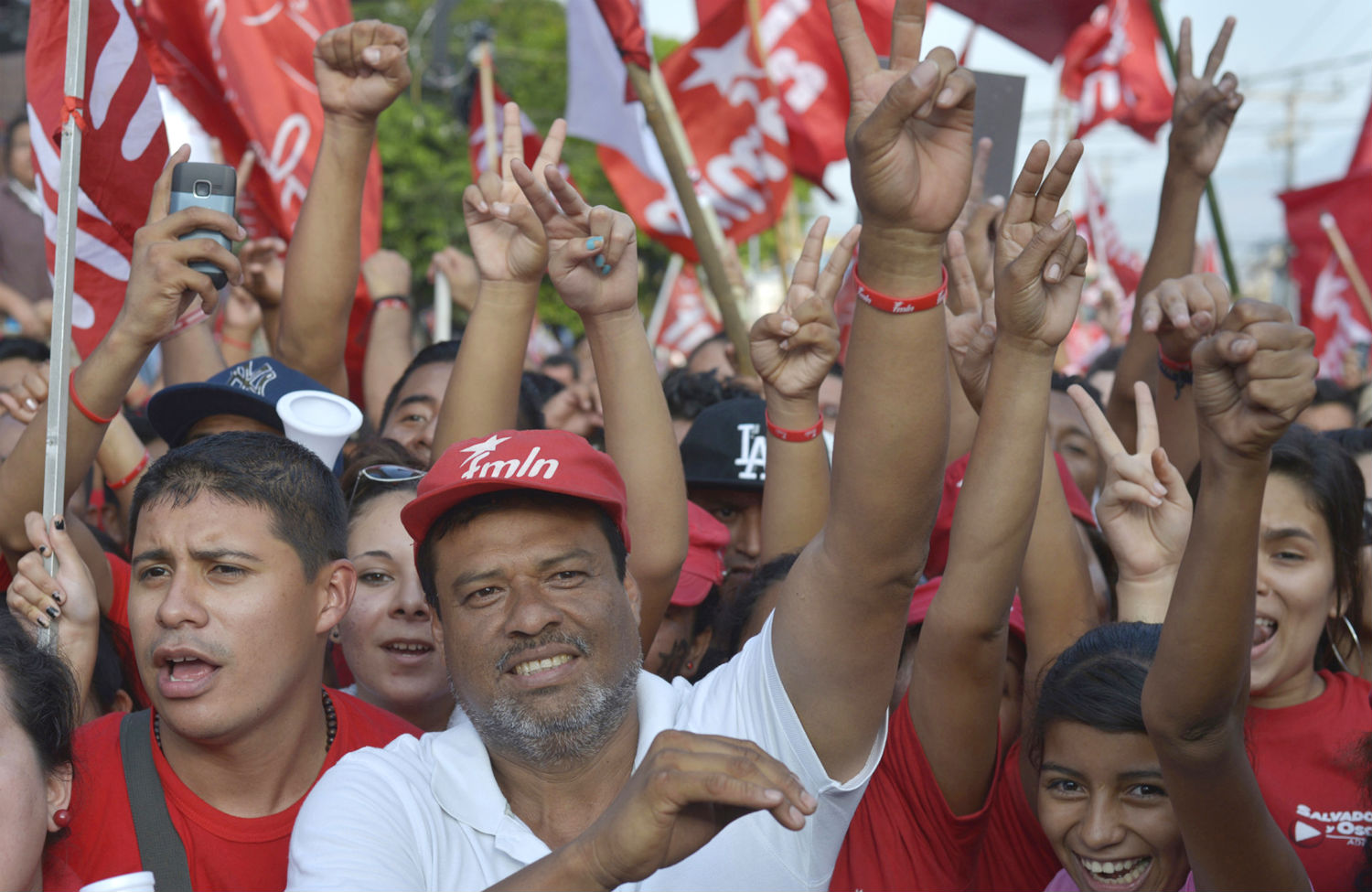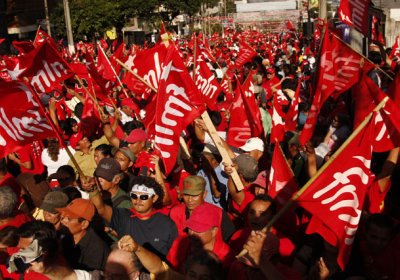Warwick Fry’s account of El Salvador’s history, from colonialism to its post-Civil War period, is a tremendous addition to understanding this beautiful country known as the Little Toe of Central America, writes Andrew Jones.
El Salvador
In 2009, 20 years after the negotiated end to a brutal civil war, the left-wing Farabundo Marti National Liberation Front (FMLN), former guerrillas turned political party, finally won the presidency of El Salvador. But, writes David Grosser, with the second FMLN administration nearing its end, a third term after next year’s presidential vote is very much in doubt.
The Argentine Senate’s rejection of a bill to legalise abortion did not stop a Latin American-wide movement, writes Fabiana Frayssinet. The movement is on the streets and expanding in an increasingly coordinated manner among women’s organisations in the region with the most restrictive laws and policies against pregnant women’s right to choose.
The US-based Committees in Solidarity with the Peoples of El Salvador (CISPES) sent international observers to El Salvador’s March 4 legislative and municipal elections. Drawing on their experiences and meetings with social movement organisations, the CISPES delegation published the following report on the elections and the challenges facing the left in the context of big gains for the right.
Latin American leaders have strongly defended the world’s most impoverished migrants after US President Donald Trump reportedly referred to certain developing nations as “shithole countries”.
Bolivian President Evo Morales expressed his indignation on Twitter: “To insult African countries, El Salvador and Haiti, Trump insults the world and demonstrates his opinions and politics are contaminated by capitalist racism, fascism, arrogance, and ignorance.
“History has shown that those who offend like this end up eating their words.”
There were innumerable horrors committed by El Salvador’s right-wing death-squad government during the civil war that raged from 1980 to 1992. Alongside the peasants and workers killed or disappeared and the nuns raped, were the priests who were executed. The most sensational execution of all was the murder of Archbishop of San Salvador Oscar Romero, gunned down while celebrating mass.
El Salvador's Congress approved a law on March 29 that prohibits all metal mining projects, in a bid to protect the Central American nation's environment and natural resources.
The new law, which enjoyed cross-party support, blocks all exploration, extraction and processing of metals, whether in open pits or underground. It also prohibits the use of toxic chemicals like cyanide and mercury.
Workers in El Salvador won a big rise in the minimum wage on January 1 — in some cases doubling their pay.
But before they had time to celebrate, the multinational companies who thrive on the country’s still-low wages counterattacked with mass layoffs, judicial manoeuvres and a bid to undermine the eight-hour day.
El Salvador’s ruling Farabundo Marti National Liberation Front (FMLN) warned the US Embassy in San Salvador on February 27 to stop supporting the country’s right-wing Nationalist Republican Alliance (ARENA) party. FMLN leaders accused the US of meddling in the country’s affairs by supporting ARENA youth working to destabilise the government.
A little-known but controversial World Bank tribunal has bucked tradition and ruled against corporate power on October 14.
The tribunal rejected Canadian-Australian gold mining giant OceanaGold’s claim that El Salvador interfered with its profits when the government pulled the plug on a proposed gold mine.
The seven-year, multi-million dollar, largely secretive court battle had pitted mining-affected Salvadoran communities — supported by international human rights groups — against the deep pockets of OceanaGold.
El Salvador's governing left-wing Farabundo Marti National Liberation Front (FMLN) concluded its first national congress on November 8 with plans to advance its struggles against inequality, exclusion and neoliberalism.
 FMLN supporters celebrate election victory. March, 2014.
Thirty-five years after its founding, El Salvador's historic Farabundo Marti National Liberation Front (FMLN) is set to hold its first national congress at the end of October.
FMLN supporters celebrate election victory. March, 2014.
Thirty-five years after its founding, El Salvador's historic Farabundo Marti National Liberation Front (FMLN) is set to hold its first national congress at the end of October.
- Page 1
- Next page










